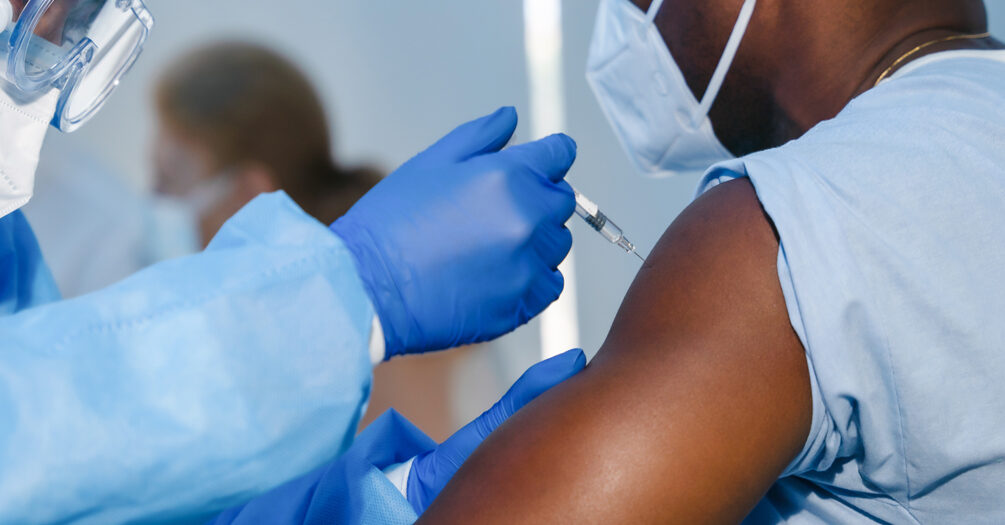C3’s focus is on a few of the counties most effected by the pandemic: Wayne, Genesee, Kent, and Washtenaw. Within these communities, they’re examining communication channels among the African-American and Latino populations in addition to messaging to promote healthy choices.
-
March 30, 2021
More Detroiters ‘very likely’ to get COVID-19 vaccine than 4 months ago, U-M survey finds
The greatest discrepancy between those willing and unwilling to vaccinate is related to how they view science on the effectiveness of the vaccine and the advice of doctors. While 94% of people likely to vaccinate say scientific findings on vaccine effectiveness are important to their decision, just 62% of those unlikely to vaccinate say it is important.
-
March 23, 2021
Giving music: Alum shares violin and life lessons
“What I love about DYV is the focus on simultaneously cultivating beautiful humanity and musicianship in each child. Their individual personal development is just as important to Clara as their music education.”
~ Monifa Lindo, mother of Detroit Youth Volume student -
March 19, 2021
Detroit Kids Matter: Two educators establish organization to support Detroit youth
An important aspect of their mission is to continue building meaningful partnerships with businesses and organizations in the Detroit area that support and advance Detroit youth. Detroit Kids Matter is an online business with occasional pop-ups.
-
March 17, 2021
Taubman faculty to support new Oakland Avenue Urban Farm project through Knight Foundation grant
“As we build a place that more North End residents are involved with and proud of, and as more community needs are served, we know the North End will thrive.”
~ Jerry Ann Hebron, Oakland Avenue Urban Farm director
-
March 8, 2021
Mutual benefit guides U-M’s work with Detroit partners
The task force’s report on engagement in Detroit is used as a guide across campus to ensure that research and engagement projects are conducted in an equitable and mutually beneficial manner. The task force was chaired by Robert Sellers, vice provost and chief diversity officer, and included representatives from all areas of campus.
-
March 8, 2021
U-M’s partnerships, initiatives in Detroit on the rise during pandemic
The variety and volume of the efforts are a collaboration with Detroit’s neighborhoods, its community organizations and its residents. While the specific goals and partners of each effort vary, all of the work aims to help boost the vitality of Detroit and the region.
-
March 5, 2021
Cyrus Peñarroyo: Connecting media, technology, and architecture
His project in Detroit will attempt to address the issue of internet connectivity through the design of a building that will be a community anchor, providing internet access. It also will help to create a new social destination with spaces for gathering, where residents can come together.
-
March 2, 2021
Virtual discussions focus on equity issues in Detroit
Hosted by Ayesha Ghazi Edwin, ENGAGE Program Manager and adjunct lecturer, the discussions focus on equity issues in Detroit and movements for social change in the city. They are free and open to the public and have featured speakers including thought leader and scholar Tawana Petty; Congresswoman Rashida Tlaib; lawyer and activist Deepa Iyer, among other prominent activists, scholars, and community leaders.


